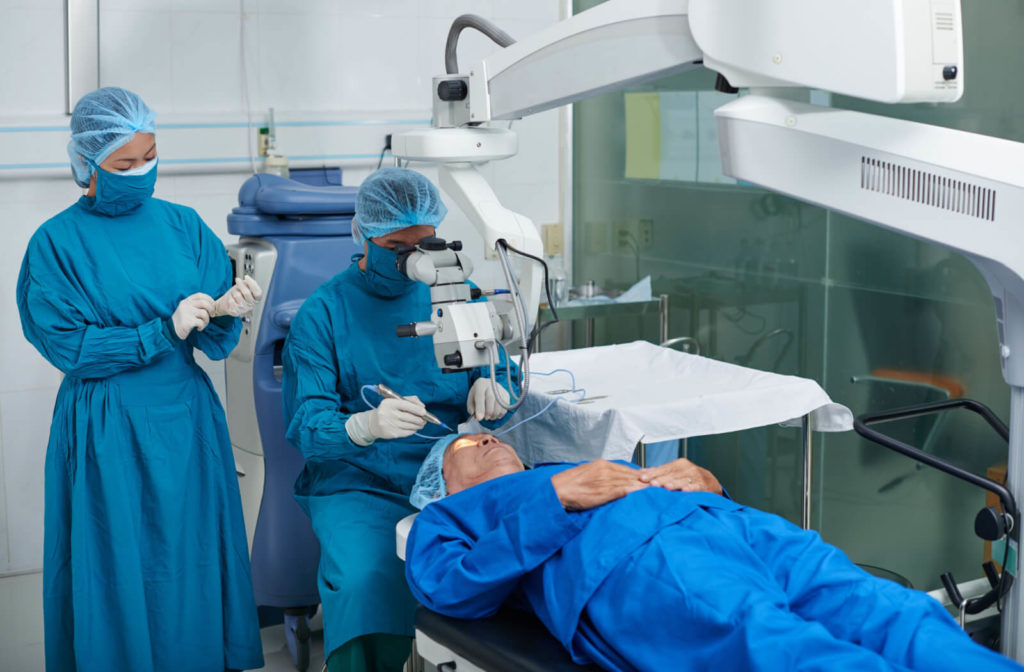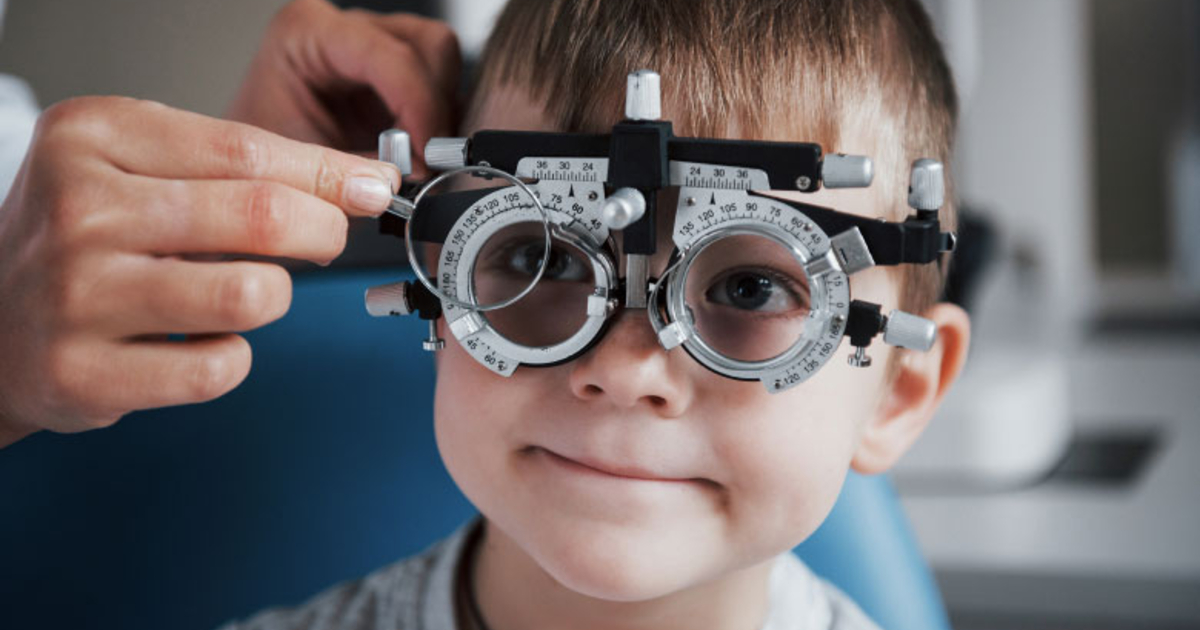Montgomery Eye Doctor: Personalized Eye Care and Vision Solutions
Montgomery Eye Doctor: Personalized Eye Care and Vision Solutions
Blog Article
The Importance of Normal Eye Exams: Insights From a Seasoned Optometrist
Regular eye tests function as a critical part of medical care that extends beyond mere vision correction. An experienced optometrist can give understandings into how these evaluations not just identify usual eye problems but also disclose underlying health and wellness problems that might or else go unnoticed. The quiet development of illness such as glaucoma and macular degeneration emphasizes the requirement of early discovery. Comprehending the frequency and value of these evaluations can ultimately affect one's long-term wellness trajectory, increasing the question of just how typically individuals must prioritize their eye health in the context of total wellness.
Benefits of Normal Eye Exams
Although lots of people may ignore the importance of routine eye tests, these assessments play a critical role in preserving total health and well-being. Routine eye exams serve not only to analyze vision but also to find very early signs of systemic health problems, consisting of diabetes mellitus and high blood pressure. By determining these problems at their beginning, patients can receive timely interventions, substantially boosting lasting outcomes.
Additionally, eye examinations can assist in monitoring existing health and wellness concerns, ensuring that any kind of adjustments in vision or eye health are without delay resolved (optometrist). The assessments permit individualized suggestions relating to glasses, way of living changes, and safety procedures against possible eye stress or damages
Beyond physical health and wellness, the benefits of routine eye exams expand to improving quality of life. Ultimately, prioritizing eye examinations fosters a positive approach to wellness management, encouraging individuals to take cost of their wellness.
Common Eye Issues Detected
Regular eye examinations contribute in detecting a range of common eye problems that can significantly affect vision and total health. Amongst one of the most common problems identified throughout these examinations are refractive errors, consisting of myopia (nearsightedness), hyperopia (farsightedness), and astigmatism. These conditions usually materialize as blurred vision and can be quickly remedied with prescription glasses or get in touch with lenses.
One more typical problem is glaucoma, a team of eye conditions that harm the optic nerve, frequently linked to boosted intraocular stress. Early discovery is crucial as it can avoid permanent vision loss.
Age-related macular deterioration (AMD) is one more substantial problem that influences main vision, specifically in people over 50. Ultimately, diabetic person retinopathy, an issue of diabetic issues, can result in serious vision problems otherwise checked frequently. With extensive eye exams, these conditions can be identified early, permitting timely management and therapy to maintain vision and boost top quality of life.
Relevance of Very Early Detection
Early detection of eye problems plays an important function in protecting vision and preventing substantial health and wellness problems. Many eye diseases, such as glaucoma, diabetic person retinopathy, and age-related macular degeneration, can proceed quietly without noticeable signs and symptoms in their beginning. By the time signs show up, permanent damage might have taken place, leading to long-term vision loss.
Normal eye tests promote very early diagnosis, enabling for prompt treatment and therapy. For circumstances, dealing with raised intraocular pressure can prevent the beginning of glaucoma, while taking care of blood glucose degrees can considerably lower the danger of diabetic person retinopathy. Additionally, problems like cataracts can be effectively handled with medical intervention when determined early.

How Commonly Should You See?
Determining the frequency of eye exams is vital for preserving optimum eye wellness and vision. The basic referral for next page grownups is to have a thorough eye test each to 2 years, depending upon specific threat elements and why not look here age. For individuals aged 18 to 60, an examination every two years is usually adequate if no vision issues are present. Nevertheless, those over 60 ought to think about annual exams, as the risk of age-related conditions increases substantially.
People with certain risk factors, such as a family members history of eye disease, diabetes mellitus, or existing vision troubles, might need even more regular assessments. Kids must have their first eye test at 6 months old, complied with by extra tests at age three and before entering college. Routine check-ups throughout youth are crucial as vision can transform quickly throughout developmental years.
Inevitably, the regularity of brows through ought to be customized to every person's scenarios, including way of life, occupational dangers, and any pre-existing eye problems. Consulting with an eye care expert can supply individualized referrals, making sure that your eye wellness is on a regular basis monitored and preserved.
Tips for Your Eye Test
Preparing for your eye test can enhance the efficiency of the browse through and guarantee a detailed examination of your eye health and wellness. To maximize your time with the eye physician, it is crucial to gather appropriate details before your appointment. Begin by assembling a checklist of any medications you are currently taking, consisting of over-the-counter medicines and supplements, as these can influence eye health.
Furthermore, document any type of signs and symptoms you have actually experienced, such as obscured vision, discomfort, or headaches. This info will help your ophthalmologist in identifying prospective concerns. If you put on glasses or call lenses, bring them along, also if you do not use them regularly. This will help the doctor evaluate any type of modifications in your vision.
It is additionally advantageous to have a household history of eye conditions handy, as hereditary aspects can add to your eye health and wellness. Finally, consider arranging your test for a while when you are less rushed, permitting you to ask inquiries and review your worries completely. By preparing sufficiently, you guarantee that your eye exam is effective which your optometrist has all the necessary details to supply the very best care feasible.

Verdict
Regular eye examinations play an essential role in preserving both vision and total wellness. Inevitably, prioritizing detailed eye analyses contributes considerably to the conservation of vision and the renovation of quality of life, underlining the requirement of regular eye treatment in preventative medical care strategies.
Routine eye examinations are important in identifying a variety of common eye conditions that can considerably affect vision and general wellness.Establishing the regularity of eye tests is essential for maintaining optimal eye health and vision.Preparing for your eye exam can enhance the effectiveness of the see check out and make certain a detailed evaluation of your eye wellness (optometrist). By preparing adequately, you ensure that your eye exam is effective and that your eye medical professional has all the essential details to supply the finest treatment feasible
Inevitably, focusing on extensive eye evaluations contributes dramatically to the conservation of vision and the enhancement of high quality of life, underlining the need of regular eye care in preventive medical care approaches.
Report this page